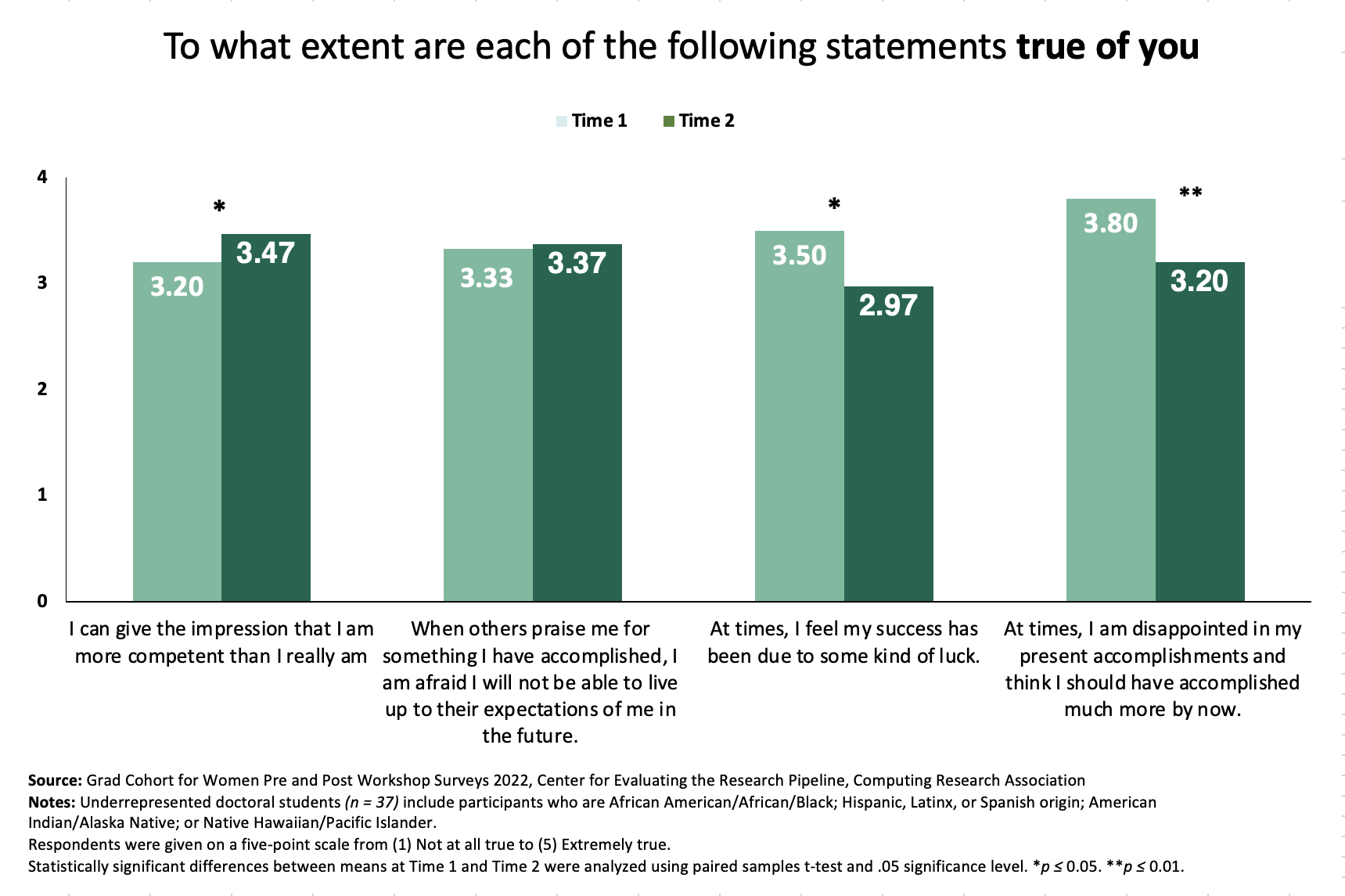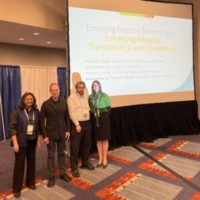Doctoral Students from Underrepresented Populations in Computing Reported Lower Feelings Related to Imposter Syndrome After Attending the 2022 CRA-WP Grad Cohort for Women Workshop

The CRA-WP Grad Cohort for Women Workshop engages women students to overcome obstacles and foster confidence to succeed in the graduate degree programs through mentoring, networking opportunities, and advising. This infographic examines significant changes in feelings related to imposter syndrome among 37 doctoral participants from populations considered underrepresented in computing [1] after attending the 2022 CRA-WP Grad Cohort for Women Workshop.
CERP evaluated the 2022 workshop using a pre/post methodology, where program participants completed surveys before (Time 1) and after the workshop (Time 2). The current analyses examine whether feelings of imposter syndrome changed among underrepresented doctoral students (n = 37) after attending the event. Survey respondents answered on a five-point scale the degree to which they disagreed or agreed with the following statements indicated in the figure. Data were analyzed using paired t-test samples with significance levels of (*) p < .05 and (**) p < .01. Findings indicated that the participants were more likely to believe they give off the impression they are more competent than they really are. Participants were also less likely to report both their success has been due to some kind of luck and feel disappointed at times in their accomplishments and think they should have done more by now. There were no statistical mean differences between Time 1 and Time 2 for them being afraid of living up to others’ expectations of their accomplishments.
Of importance, this analysis did not include disability status and other demographic characteristics, such as citizenship status and first-generation status. It is possible that the findings may differ if the analysis included these participant characteristics. Additional analyses will be conducted to examine if imposter syndrome differs by disability, citizenship, and first-generation status.
Notes: The survey data analyzed for this infographic were collected by the Center for Evaluating the Research Pipeline via 2022 Grad Cohort for Women Pre and Post Workshop Surveys. Respondents were given on a five-point scale from (1) Not at all true to (5) Extremely true. Notably, lower scores represent agreement with the statement; thus, lower scores over time indicate improvement.
[1] Underrepresented doctoral students (n = 37) include participants who are African American/African/Black; Hispanic, Latinx, or Spanish origin; American Indian/Alaska Native; or Native Hawaiian/Pacific Islander.
 This analysis is brought to you by the CRA’s Center for Evaluating the Research Pipeline (CERP). CERP provides social science research and comparative evaluation for the computing community. Subscribe to the CERP newsletter here. Check out CERP’s activities and find out how to engage on CERP’s website.
This analysis is brought to you by the CRA’s Center for Evaluating the Research Pipeline (CERP). CERP provides social science research and comparative evaluation for the computing community. Subscribe to the CERP newsletter here. Check out CERP’s activities and find out how to engage on CERP’s website.
This material is based upon work supported by the National Science Foundation under grant numbers, CNS-1246649/ CNS 1840724. Any opinions, findings, and conclusions or recommendations expressed in this material are those of the author(s) and do not necessarily reflect the views of the National Science Foundation.









